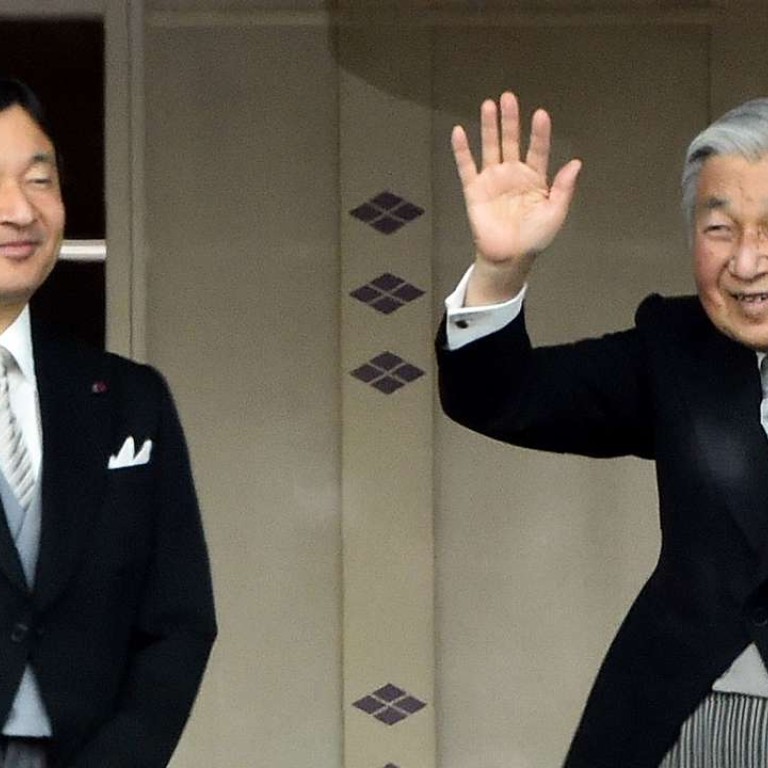
Japan’s Emperor Akihito to abdicate in 2018 on his 85th birthday, government source says
The Japanese government has started to discuss a plan to arrange for Emperor Akihito to abdicate on December 23, 2018, which is his 85th birthday, and Crown Prince Naruhito to ascend the throne on that day or the following day, a government source said Tuesday.
The idea emerged a few hours after a senior Imperial Household Agency official said it would be “difficult” for the crown prince, 56, to begin his reign as new emperor on January 1, 2019, as has been recently reported by Japanese media, due to key events held every year on New Year’s Day.

An era name is adopted in Japan for the reign of each emperor, with the current era called Heisei.
The idea of using the new era name at the start of a year has been floated as a way to reduce the impact of the change on people’s lives, as the era name is widely used in Japan for calendars as well as official documents, another source said earlier.
Vice Grand Steward of the Imperial Household Agency Yasuhiko Nishimura told a press conference, however, that January 1 “is an important day for the imperial family” and “it would be difficult to set events related to an abdication and enthronement.”
He cited the New Year celebration at the Imperial Palace, which is defined as a “matter of state,” and various Shinto rites, which are private acts of the family, as the key events.

Regarding the idea of applying a new era name from the beginning of the year, even if an accession ceremony is held on a day other than January 1, Nishimura said, “I would like to refrain from answering (that question) as we have not even discussed what kind of (accession) ceremony is to be held.”
During a press conference last week, Nishimura said he was surprised by the news, adding it was “a bolt from the blue.”
According to the reports, Prime Minister Shinzo Abe’s government views 2018 as a time limit after the 83-year-old emperor stated in a video message last August: “A major milestone year marking the 70th anniversary of the end of World War II has passed, and in two years we will be welcoming the 30th year of Heisei.” The 30th year of the Heisei era falls in 2018.
The government is reportedly seeking to enact special legislation during a Diet session convening Friday to enable the emperor to abdicate, based on his indication that he desires to do so.

